Archive
29 April 2021
Researchers create living material based on algae
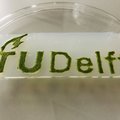
Researchers led by Delft University of Technology (TU Delft) used 3D printing to create a novel, environmentally-friendly and living material made of algae that has many potential applications.
26 April 2021
Royal Honors for three TU Delft professors
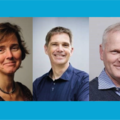
De Delftse hoogleraren Pieternel Levelt, Jack Pronk en Kees Vuik hebben dit jaar een Koninklijke Onderscheiding ontvangen.
20 April 2021
Dome plating RID
RID's dome is getting a makeover, in the form of new dome plating. How are things going with this cosmetic operation? Project leader Simone Janssen gives us an update in this video. Don't forget to enable the subtitles!
14 April 2021
Chirlmin Joo receives VICI grant for identifying proteins one at a time
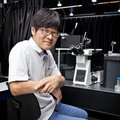
Researcher Chirlmin Joo of TU Delft will receive a VICI grant for developing a method to sequence proteins one at a time. He will receive 1.5 million euros from the Netherlands Organisation for Scientific Research (NWO).
13 April 2021
Investment from Growth Fund gives Zuid-Holland economy a big boost
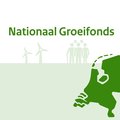
Zuid-Holland's economy and knowledge and innovation infrastructure will be strengthened thanks to investments from the National Growth Fund announced today by the demissionary government. The money will go towards improving accessibility, Health, Quantum, Green Power and Artificial Intelligence.
07 April 2021
Using molecular sieves to adjust the taste of non-alcoholic beer
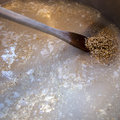
Researcher Deborah Gernat has created a new method to further develop the taste of non-alcoholic beer, in collaboration with Heineken. The technique, which is based on molecular sieves, gives brewers a new tool to bring the taste of non-alcoholic beer closer to that of regular beer. The first tests showed that the sweet 'wort taste' that often characterizes alcohol-free beer can be reduced using this method. On April 9th, Deborah Gernat will receive her doctorate on this subject at Delft University of Technology (TU Delft).
29 March 2021
Clever Delft trick enables 20 times faster imaging with electron microscopy

Researchers at TU Delft have expanded upon a clever trick that increases the speed of electron microscope imaging by a factor of twenty. A simple adjustment is all that is needed: applying a voltage to the specimen holder. Through this simple intervention, a specimen that the electron microscope would normally take a week to image can now be inspected in a single night or one working day.
26 March 2021
Researchers shed new light on DNA replication
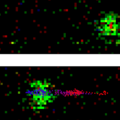
In preparation for cell division, cells need to copy (‘replicate’) the DNA that they contain. A team of researchers from TU Delft, collaborating with investigators from the Francis Crick Institute in London, has now shown that the protein building blocks involved in the initial steps of DNA replication are mobile but reduce their speed at specific DNA sequences on the genome. Their findings, which will be published on 26 March in the open-access journal Nature Communications, were facilitated using an integrated approach involving biophysics and biochemistry that will propel new discoveries in the field.
24 March 2021
Semiconductor qubits scale in two dimensions
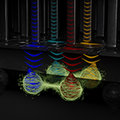
The heart of any computer, its central processing unit, is built using semiconductor technology, which is capable of putting billions of transistors onto a single chip. Now, researchers from the group of Menno Veldhorst at QuTech, a collaboration between TU Delft and TNO, have shown that this technology can be used to build a two-dimensional array of qubits to function as a quantum processor. Their work, a crucial milestone for scalable quantum technology, was published today in Nature.
22 March 2021
Decoding movement intentions in the brain using ultrasound waves
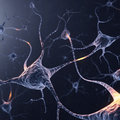
An international team of scientists that includes ImPhys researcher David Maresca published an article in Neuron today demonstrating decoding of movement intentions in the brain using ultrasound. The work shows great promises for the development of less invasive brain-machine interfaces.